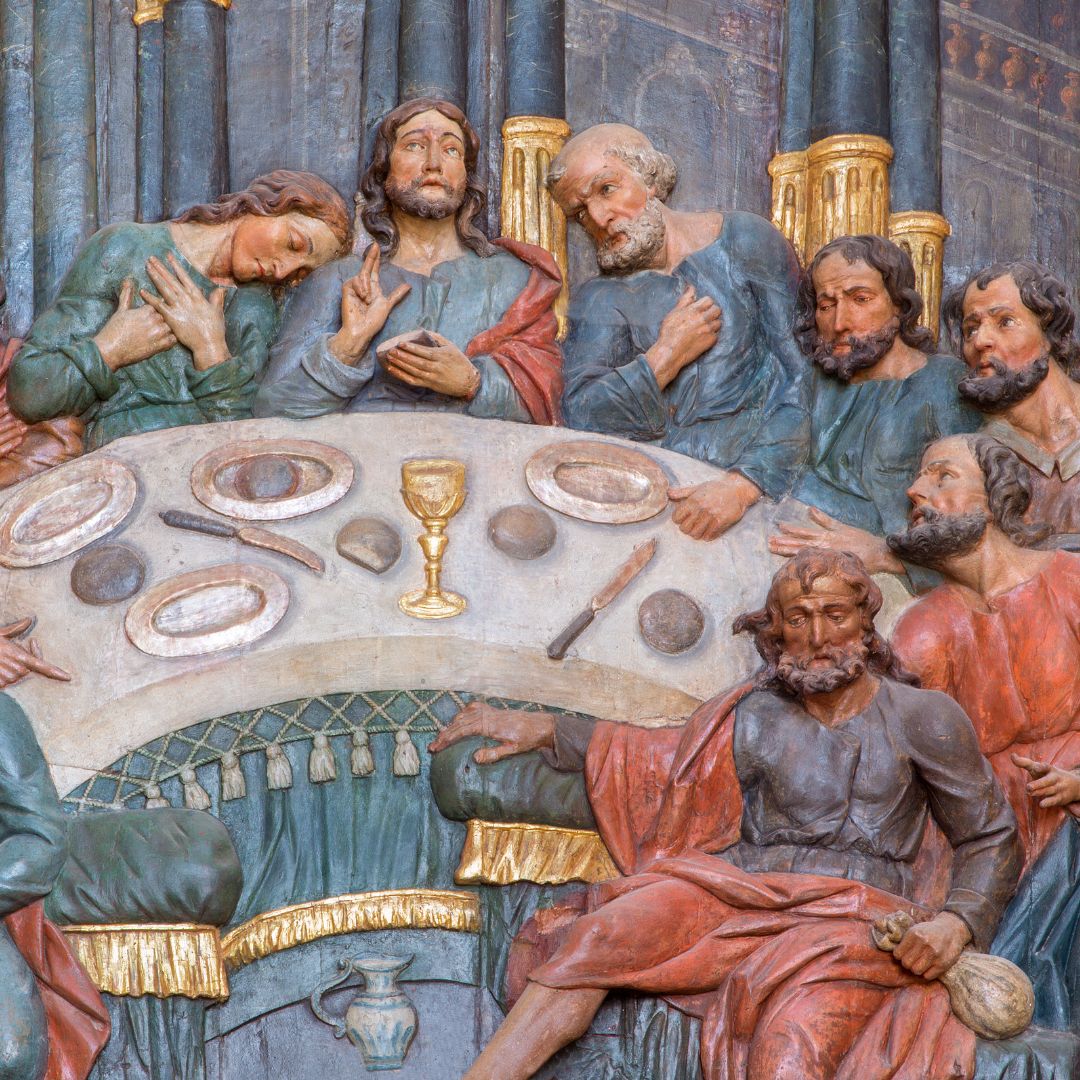This post is written by the timeless voice of Brennan Manning, taken from his book, Abba’s Child.
Once, on a five-day silent retreat, I spent the entire time in John’s gospel. Whenever a sentence caused my heart to stir, I wrote it out longhand in a journal. The first of many entries was also the last:
“The disciple Jesus loved was reclining next to Jesus . . . leaning back on Jesus’ breast.” John 13:23,25
We must not hurry past this scene in search of deeper revelation, or we will miss a magnificent insight. John lays his head on the heart of God, on the breast of the Man whom the Council of Nicea defined as “being coequal and consubstantial to the Father . . . God from God, Light from Light, True God from True God.” This passage should not be reduced to a historical memory. It can become a personal encounter, radically affecting our understanding of who God is and what our relationship with Jesus is meant to be. God allows a young Jew, reclining in the rags of his twenty-odd years, to listen to His heartbeat!
Have we ever seen the human Jesus at closer range?
Clearly, John was not intimidated by Jesus. He was not afraid of his Lord and Master. The Jesus John knew was not a hooded mystic abstracted by heavenly visions or a spectral face on a holy card with long hair and a flowing robe. John was deeply affected by this sacred Man.
Fearing that I would miss the divinity of Jesus, I distanced myself from His humanity, like an ancient worshiper shielding his eyes from the Holy of Holies. My uneasiness betrays a strange hesitancy of belief, an uncertain apprehension of a remote Deity rather than intimate confidence in a personal Savior.
As John leans back on the breast of Jesus and listens to the heartbeat of the Great Rabbi, he comes to know Him in a way that surpasses mere cognitive knowledge.
What a world of difference lies between knowing about someone and knowing Him! We may know all about someone—name, place of birth, family of origin, educational background, habits, appearance—but all those vital statistics tell us nothing about the person who lives and loves and walks with God.
In a flash of intuitive understanding, John experiences Jesus as the human face of the God who is love. And in coming to know who the Great Rabbi is, John discovers who he is—the disciple Jesus loved. Years later, the evangelist would write,
“In love there can be no fear, but fear is driven out by perfect love: because to fear is to expect punishment, and anyone who is afraid is still imperfect in love.” 1 John 4:18
Beatrice Bruteau, in her book, Radical Optimism, wrote, “To know the subject, you have to enter inside the subject, enter into that subject’s own awareness, that is, have the same awareness yourself in your own subjectivity: ‘Let that mind be in you which was also in Christ Jesus.’” Philippians 2:6
I sense this is what happened in the Upper Room. Not only did the beloved disciple come to know Jesus, but the meaning of all that Jesus had taught suddenly exploded like a starburst. “I first learned the Word of God when the Great Rabbi held me silently against his heart.”
For John, the heart of Christianity was not an inherited doctrine but a message born of his own experience. And the message he declared was,
“God is love.” 1 John 4:16
Philosopher Bernard Lonergan noted in his book, Touching the Holy, “All religious experience at its roots is an experience of an unconditional and unrestricted being in love.”
The recovery of passion begins with the recovery of my true self as the beloved. If I find Christ, I will find myself, and if I find my true self, I will find Him. This is the goal and purpose of our lives. John did not believe that Jesus was the most important thing; he believed that Jesus was the only thing. For “the disciple Jesus loved,” anything less was not genuine faith.
I believe that the night in the Upper Room was the defining moment of John’s life. Some sixty years after Christ’s resurrection, the apostle—like an old gold miner panning the stream of his memories—recalled all that had transpired during his three-year association with Jesus. He made pointed reference to that holy night when it all came together, and he affirmed his core identity with these words: “Peter turned and saw the disciple Jesus loved following them—the one who had leaned on his breast at the supper” ( John 21:20).
If John were to be asked, “What is your primary identity, your most coherent sense of yourself?” he would not reply, “I am a disciple, an apostle, an evangelist,” but “I am the one Jesus loves.”

